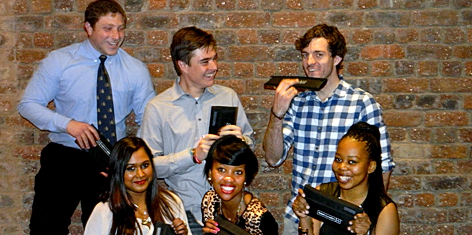Latest News Archive
Please select Category, Year, and then Month to display items
12 October 2020
|
Story Dr Cindé Greyling
|
Photo Supplied
 Exercise and nutrition can work wonders for your mental health – you don’t even have to ‘feel like’ or ‘enjoy’ moving around and eating well for it to work – it does its thing anyway.
Exercise and nutrition can work wonders for your mental health – you don’t even have to ‘feel like’ or ‘enjoy’ moving around and eating well for it to work – it does its thing anyway.
Nowadays, people talk about mental health like it is the common cold – which is good! But do you know what it really means? Being mentally healthy does not only refer to the absence of a mental illness but includes your emotional and social well-being. One would almost want to add physical well-being too, since a healthy body does indeed support a healthy mind. However, since so many people consider themselves ‘mental health experts’, some myths have been sold as truths.
Myth #1 – You are doomed.
Nope. Never. You are never doomed. There is always help. Mental-health therapies range from self-help, talk therapy, medication, to hospitalisation in some cases. Somewhere on this spectrum of treatments, there will be something that works for you. But you must be willing to get the help and do the work. For starters, exercise and nutrition can work wonders – you do not even have to ‘feel like’ or ‘enjoy’ moving around and eating well for it to work – it does its thing anyway.
Myth #2 – It won’t affect you.
It may. Research suggests that one in five people may suffer from a mental illness at some point in their lives. Being well now does not mean that it will stay that way. Biological and environmental factors both impact your mental health. Hopefully not, but at some point, you may experience an event that affects your mental health.
To remain integrated in a community is always beneficial
for anyone suffering from a mental or physical condition.
Myth #3 – Someone struggling with mental health must be left alone.
Hardly! To remain integrated in a community is always beneficial for anyone suffering from a mental or physical condition. You do not need to fix them, but to remain a friend. Continue to invite them, even if they decline. Do not judge, and do not try to understand. Just stay around.
Go and be kind to yourself, and to those around you.
Six of our students on their way to Stanford Sophomore College
2014-08-21

Back, from the left are: Philip Kitsopoulos (BCom Law), Ulrich Kristen (Medicine)
and Stephan Erasmus (Medicine).
The university hosted a send-off function for our students who are about to attend a three-week seminar at Stanford Sophomore College (SoCo).
Six Kovsie students were selected to attend the seminar at the Stanford SoCo in September 2014. This programme is an immersive learning experience where participants attend class meetings during the morning. Their afternoons include class activities, explorations of Stanford, field trips as well as organised events.
UFS students were invited to apply for one of six SoCo courses in February 2014. After months of apprehension, the successful Kovsie applicants were announced in May this year.
These outstanding Kovsie students and the courses they will attend are:
- Sebabatso Makafane, Vuyisile Kubeka and Philip Kitsopoulos – New Millennium Mix: Crossings of Race and Culture;
- Ulrich Kristen – Resistance Writings in Nazi Germany;
- Kaylene Pillay – Ghost Stories: Why the Dead Return and What They Want From Us; and
- Stephan Erasmus – Responses to the AIDS Epidemic.
During the farewell function, Rudi Buys: Dean of Student Affairs, handed the students their flight tickets and visas. This was followed by messages of support from Dr Lis Lange, Directorate for Institutional Research and Academic Planning, and Prof Neil Roos from the Centre for Africa Studies.
Prof Roos concluded the evening’s programme with some advice for these students. “Don’t go there and come back to copy the students and personalities you meet there. Go there and show your own characteristics to them.”
The six Kovsies will depart on 29 August and return home on 19 September 2014.